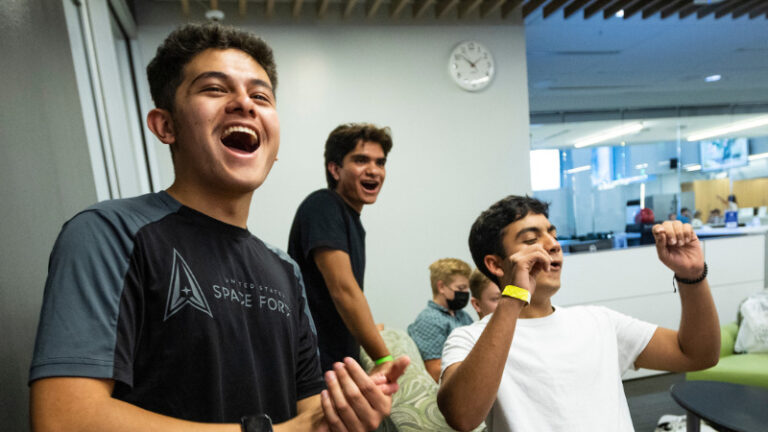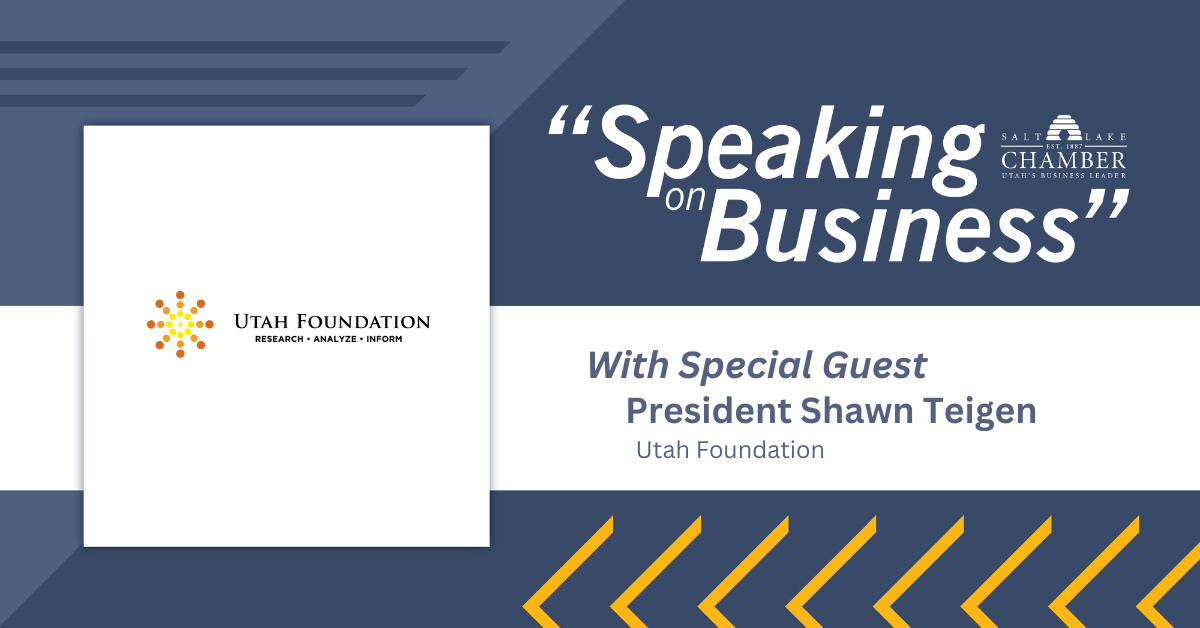University’s efforts generate new funding and recognition
OREM, Utah — Utah Valley University (UVU) continues to expand its Latino Initiative program to meet the needs of Utah’s growing college-aged Latino population and is being recognized for the progress being made.
With the largest Latino student enrollment among four-year higher education institutions in Utah, UVU provides a variety of programs to help pre-college-age Latino students feel at home on campus. Each summer, UVU hosts dozens of high school students for three tuition-free 10-week programs: Latino Scientists of Tomorrow, Engineers & Technologists of Tomorrow, and Business Leaders of Tomorrow.
Each “Tomorrow” program offers classes and activities designed to increase the number of underrepresented students in Utah who graduate with STEM degrees. The success of the UVU-created programs led to them being piloted at six other universities across the nation, receiving $2 million in support via a partnership with Dominion Energy
According to program leaders, approximately 85% of students who complete the summer bridge programs attend UVU for at least one semester after graduating from high school and about 40% of those students major in a STEM field.
Elizabeth Nield, Director of the Latino Initiative, envisions providing services and programs to encourage inclusion, remove barriers, foster cultural competence through best practices, and guide students’ journey to success. She wants to create a home away from home and a refuge for Latino and Hispanic students at UVU.
“UVU’s Latino students come from a variety of backgrounds with varying needs. This population has broad, diverse identities. All students have different challenges depending on their circumstances,” says Nield. “My students are my friends. Even when they’ve finished school, they know they can consider you a friend. That’s the most important part I have seen.”
As part of the program, UVU also holds numerous community outreach events at high schools and other places where families feel comfortable, meeting them where they are. These events highlight resources, scholarships, and ways to get financial aid, providing information in Spanish to those who need it.
UVU senior Hector Cedillo, who is the president of UVU’s Latino Leadership Council, says the biggest thing he tries to communicate at these events is that there are no limits on what Latino kids can do in life.
“Sometimes people think Latinos come to the U.S. just to work, you know, construction and restaurants, things like that,” Cedillo says, “when in reality we have the potential, the capacity, the skills, the knowledge to become a CEO of a company, become a business owner. There are so many more things that we can do.”
In addition, UVU encourages Latino-focused events, such as Bachatafest, an annual dance event and scholarship fundraiser featuring Latin American music that draws thousands of attendees, to help students and community members preserve and embrace their culture, even if they are a long way from their countries of origin.
“We don’t want students to lose their cultural background,” Nield says. “That’s so important for us. When another person knows about your culture, they can get to know you. You’re not putting on a mask. You don’t think, ‘Oh, I need to be another person because I don’t fit here.’”
“We believe in inclusive education,” said Dr. Astrid S. Tuminez, president of Utah Valley University. “We especially focus on creating opportunities for those who are underrepresented. Our Latino students bring rich cultural experience and amazing talents to our campus family. It thrills me to see so many of our Latino alums now in meaningful careers and actively involved in our community – and to know that UVU has been part of their journey.”
UVU has been recognized as an Outstanding Member Institution by the Hispanic Association of Colleges and Universities (HACU) for its pioneering efforts to assist Latino and other unrepresented populations find their path in higher education.


